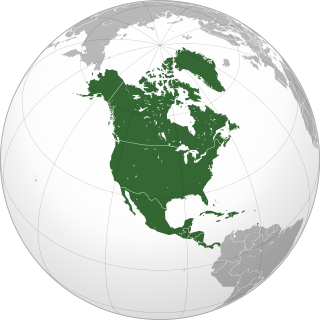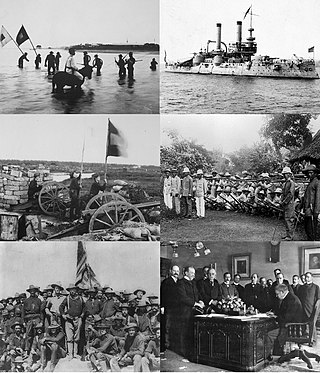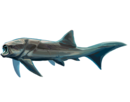
The American Revolutionary War, also known as the Revolutionary War or American War of Independence, was a military conflict that was part of the broader American Revolution, where American Patriot forces organized as the Continental Army and commanded by George Washington defeated the British Army.

The American Revolution was a rebellion and political movement in the Thirteen Colonies which peaked when colonists initiated an ultimately successful war for independence against the Kingdom of Great Britain. Leaders of the American Revolution were colonial separatist leaders who originally sought more autonomy within the British political system as British subjects, but later assembled to support the Revolutionary War, which successfully ended British colonial rule over the colonies, establishing their independence, and leading to the creation of the United States of America.

African Americans, also known as Black Americans or Afro-Americans, are an ethnic group consisting of Americans with partial or total ancestry from any of the Black racial groups of Africa. African Americans constitute the third largest racial or ethnic group in the U.S. after White Americans and Hispanic and Latino Americans. The term "African American" generally denotes descendants of Africans enslaved in the United States.

Christopher Columbus was an Italian explorer and navigator from the Republic of Genoa who completed four Spanish-based voyages across the Atlantic Ocean sponsored by the Catholic Monarchs, opening the way for the widespread European exploration and European colonization of the Americas. His expeditions were the first known European contact with the Caribbean and Central and South America.

Latin America is a collective region of the Americas where Romance languages—languages derived from Latin—are predominantly spoken. The term was coined in France in the mid-19th century to refer to regions in the Americas that were ruled by the Spanish, Portuguese, and French empires.
May 17 is the 137th day of the year in the Gregorian calendar; 228 days remain until the end of the year.
May 16 is the 136th day of the year in the Gregorian calendar; 229 days remain until the end of the year.
May 15 is the 135th day of the year in the Gregorian calendar; 230 days remain until the end of the year.
May 13 is the 133rd day of the year in the Gregorian calendar; 232 days remain until the end of the year.
May 14 is the 134th day of the year in the Gregorian calendar; 231 days remain until the end of the year.

North America is a continent in the Northern and Western Hemispheres. North America is bordered to the north by the Arctic Ocean, to the east by the Atlantic Ocean, to the southeast by South America and the Caribbean Sea, and to the west and south by the Pacific Ocean. The region includes the Bahamas, Bermuda, Canada, the Caribbean, Central America, Clipperton Island, Greenland, Mexico, Saint Pierre and Miquelon, Turks and Caicos Islands, and the United States.

Native Americans, sometimes called American Indians, First Americans, or Indigenous Americans, are the Indigenous peoples of the United States or portions thereof, such as American Indians from the contiguous United States and Alaska Natives. The United States Census Bureau defines Native American as "all people indigenous to the United States and its territories, including Native Hawaiian and Other Pacific Islanders, whose data are published separately from American Indians and Alaska Natives". The U.S. census tracks data from American Indians and Alaska Native separately from Native Hawaiian and other Pacific Islanders, who include Samoan Americans and Chamorros. This demographic generally does not include Mesoamerican Indigenous peoples like the Maya.

South America is a continent entirely in the Western Hemisphere and mostly in the Southern Hemisphere, with a considerably smaller portion in the Northern Hemisphere. It can also be described as the southern subregion of the Americas.

The Spanish–American War began in the aftermath of the internal explosion of USS Maine in Havana Harbor in Cuba, leading to United States intervention in the Cuban War of Independence. The war led to the United States emerging predominant in the Caribbean region, and resulted in U.S. acquisition of Puerto Rico, Guam, and the Philippines. It also led to United States involvement in the Philippine Revolution and later to the Philippine–American War.

The Americas, sometimes collectively called America, are a landmass comprising the totality of North and South America. The Americas make up most of the land in Earth's Western Hemisphere and comprise the New World.

The War of 1812 was fought by the United States and its allies against the United Kingdom and its allies in North America. It began when the United States declared war on Britain on 18 June 1812. Although peace terms were agreed upon in the December 1814 Treaty of Ghent, the war did not officially end until the peace treaty was ratified by the United States Congress on 17 February 1815.

American Idol is an American singing competition television series created by Simon Fuller, produced by Fremantle North America and 19 Entertainment, and distributed by Fremantle North America. It aired on Fox from June 11, 2002, to April 7, 2016, for 15 seasons. It was on hiatus for two years until March 11, 2018, when a revival of the series began airing on ABC.

The United States of America, commonly known as the United States or America, is a country primarily located in North America. It is a federation of 50 states, a federal capital district, and 326 Indian reservations. Outside the union of states, it asserts sovereignty over five major unincorporated island territories and various uninhabited islands. The country has the world's third-largest land area, second-largest exclusive economic zone, and third-largest population, exceeding 334 million.

A continent is any of several large geographical regions. Continents are generally identified by convention rather than any strict criteria. A continent could be a single landmass or a part of a very large landmass, as in the case of Asia or Europe. Due to this, the number of continents varies; up to seven or as few as four geographical regions are commonly regarded as continents. Most English-speaking countries recognize seven regions as continents. In order from largest to smallest in area, these seven regions are Asia, Africa, North America, South America, Antarctica, Europe, and Australia. Different variations with fewer continents merge some of these regions; examples of this are merging North America and South America into America, Asia and Europe into Eurasia, and Africa, Asia, and Europe into Afro-Eurasia.






















